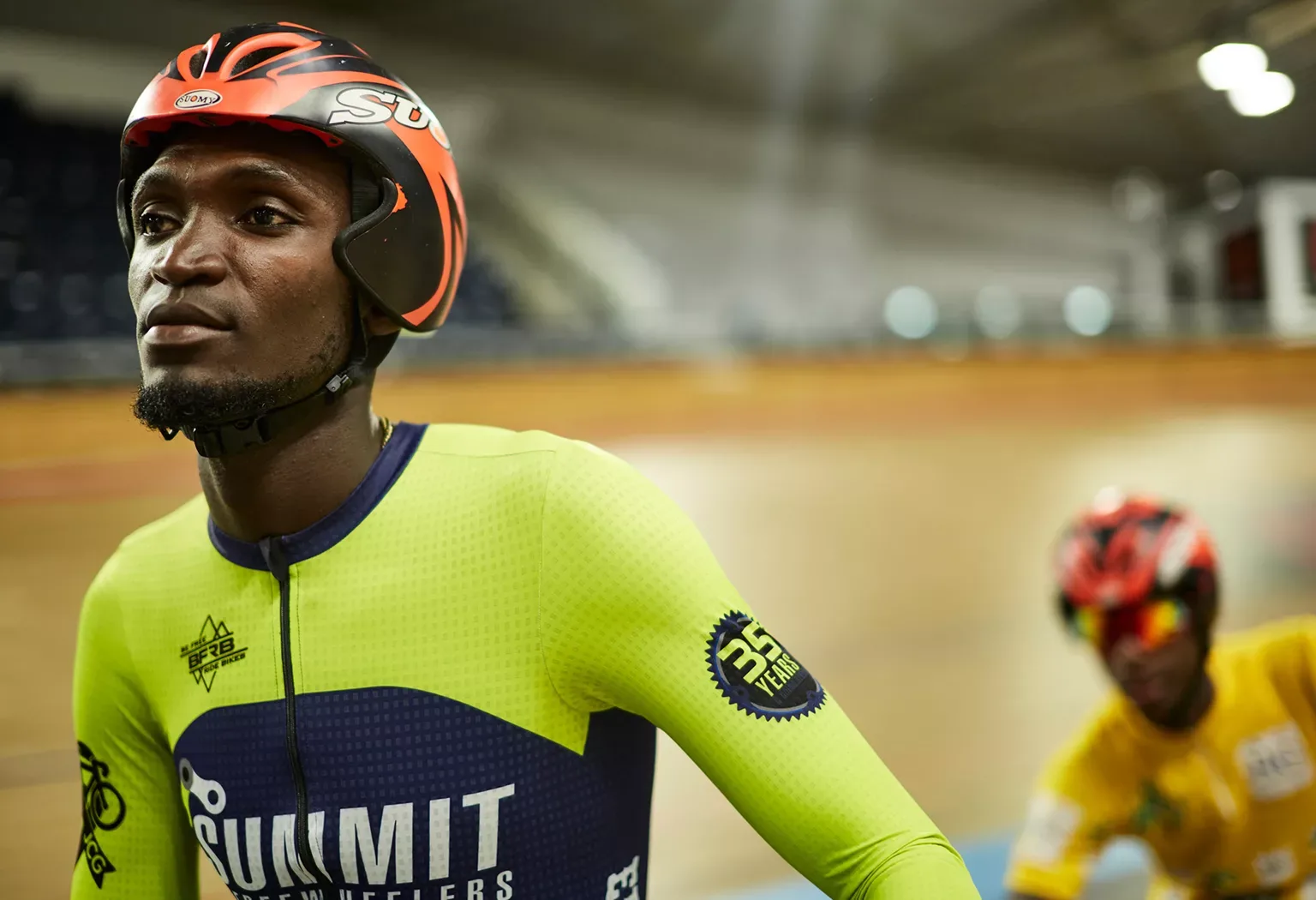With the goal of globalising professional keirin racing, DerbyWheel emerges as a pioneer of velodrome cycling and hopes to share the profits generated from its global operation. Shaaban Mohammed, Managing Director of DerbyWheel Africa, tells us more about its growing popularity on the continent.
PEDALLING A REVOLUTION
As a sport, cycling has historically proven extraordinarily popular, owing in part to its versatility.
Indeed, track, road, and mountain cycling all boast strong international fan bases, which have seen hundreds of indoor and outdoor velodromes built across the world.
However, in recent years, many velodromes across Europe and the US have faced an uncertain future due to high maintenance costs, which could, in turn, adversely affect associated athletes and stakeholders.
Yet, in Japan and South Korea, professional keirin racing has seen huge annual revenues generated solely from domestic betting, totalling around USD$10 billion in the former and USD$2 billion in the latter.
Professional keirin athletes in the two countries often compete for significant prize monies of up to USD$1 million.
DerbyWheel is an organisation intent on globalising the discipline, which is currently operated as a closed domestic enterprise in Japan and South Korea.
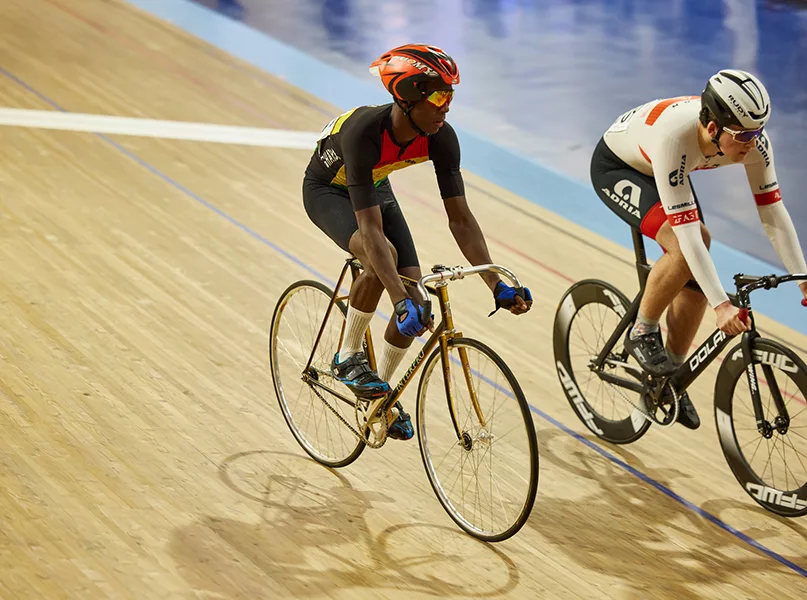
“Our intent, mission, and goal is to create an open professional keirin league with equal accessibility for the entire cycling family, to provide benefits to riders, venues, and other stakeholders across the globe,” opens Shaaban Mohammed, Managing Director of DerbyWheel Africa.
To distribute race content to the international market, the organisation plans to adopt the lucrative Japanese and Korean business model.
“Fundamentally, we will contribute to the welfare and future of cyclists and utilise velodromes around the world by sharing the profits generated from its global operation,” Mohammed details.
GLOBAL IMPLEMENTATION, AFRICAN OPERATION
Due to a considerable lack of infrastructure and owing to the high cost of events, cycling in developing countries, such as those in Africa, has often been heavily underrepresented. DerbyWheel hopes to change this.
“Our mission is to give equal opportunities to cyclists around the world, especially to those less privileged, from countries where there is very little investment in cycling. DerbyWheel has given hope to a lot of African cyclists, and we are excited to see what the future holds,” Mohammed excites.
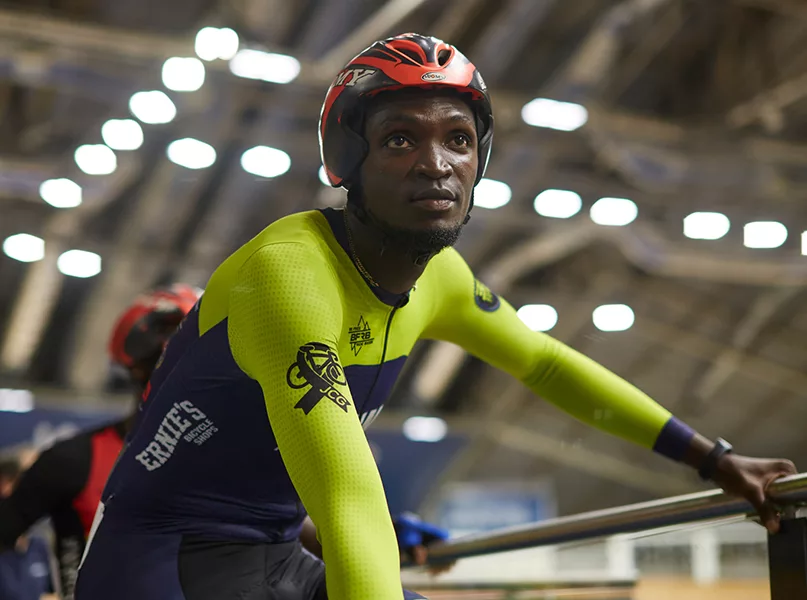
DerbyWheel intends to provide a realistic pathway for riders across Africa to enter events such as the World Championships and the Olympic Games. It hopes to achieve this by sponsoring riders to attend events.
“Usually, riders must spend their own money to go to events, many of which provide no financial reward. DerbyWheel intends to cover riders’ expenses and eventually reward them with a cut of the revenue generated from the event.”
Despite Africa’s vast population spanning 54 countries, which are home to over three million cyclists, there is currently only one standard velodrome in Cairo, Egypt. Thus, most African cyclists can be found training on grass or athletic tracks – a far cry from the facilities found in Europe, the US, Japan, or South Korea.
More from Africa Outlook
“We hope that DerbyWheel will offer a pathway for cyclists from countries where there are limited cycling facilities and infrastructure, providing hope for those riders and discovering hidden talent along the way,” Mohammed reflects.
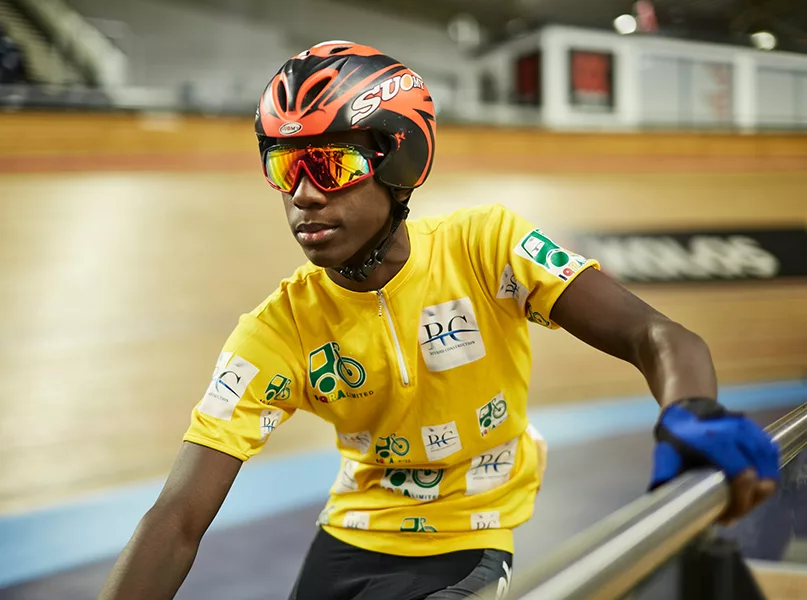
A SUSTAINABLE PATHWAY
It is hoped that more velodromes in different African regions will be developed in the coming years, and DerbyWheel intends to have a positive impact on this prospect by influencing increased participation.
“The fact we have the possibility to offer riders a consistent income and cover their expenses will make a massive difference in making cycling more accessible and sustainable in places like Africa,” Mohammed comments.
Ghana has already received five bicycles and other associated equipment from DerbyWheel, which has been a massive help in introducing cyclists in the region to the sport.
“It is only the beginning, but we hope to continue to increase the amount of equipment we provide and improve the facilities we use,” he enthuses.
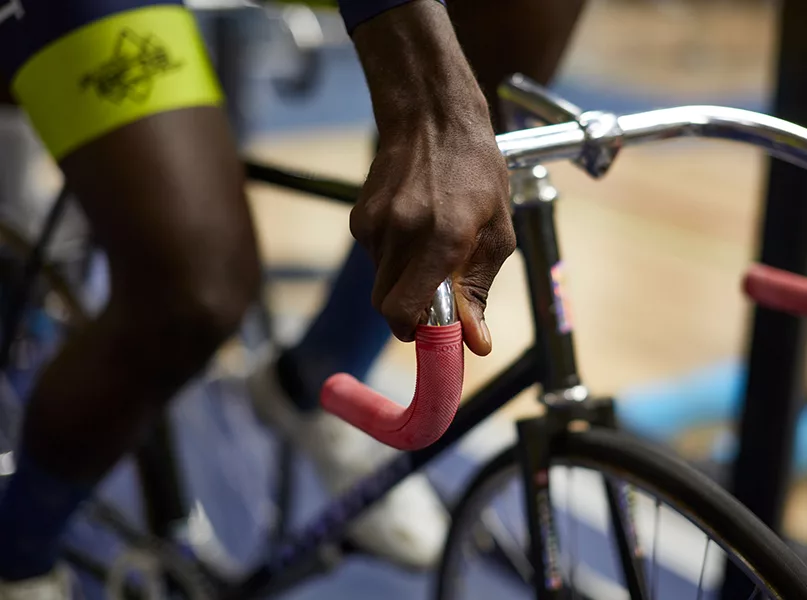
Last year, DerbyWheel sponsored the National Cycling Tour of Ghana. The winners, Solomon Tegoe and Farrakhan Shaaban Mohammed, were able to attend the DerbyWheel introduction event in Manchester, UK, that took place in January this year.
“Initiatives like this will only help to increase participation,” Mohammed explains.
As DerbyWheel’s efforts in Africa continue, the organisation hopes to establish a sustainable pathway for riders and develop the sport across the nation.
“The future of African cycling is close to my heart, and I am proud to be associated with such a visionary outfit as DerbyWheel, which has proven beyond scepticism that it can deliver and serve as a platform of change for many cyclists across the world, especially in Africa,” he concludes.



